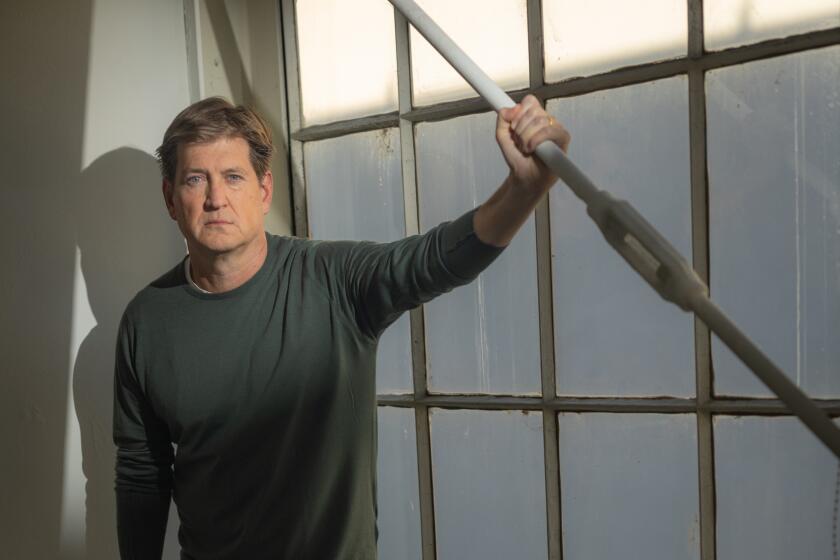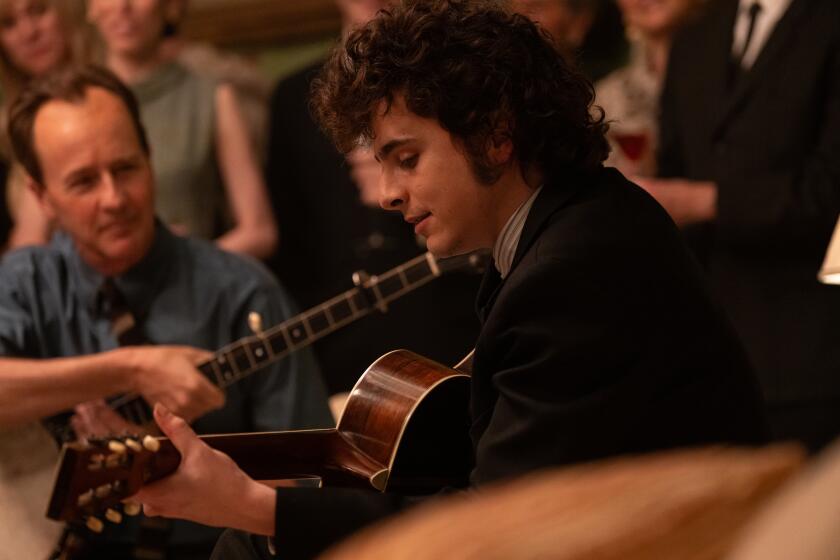Pact Impasse May Prompt More Revivals, Fewer New Plays
The Dead Playwrights Society.
That’s what the nation’s leading resident theaters might resemble if an impasse between the organization that represents them and the Dramatists Guild isn’t broken.
The guild, with a membership of 7,000 American and British playwrights, has issued a standard contract for its members to use when their plays are produced “at LORT (League of Resident Theaters) or other resident/regional not-for-profit theaters.”
The document mandates a minimum author’s royalty of 5% of the gross, an advance payment equal to the author’s royalty for one week of performances at 90% of the theater’s capacity, and provisions covering subsidiary rights, as well as production and payment procedures. Writers who sign contracts judged as substandard run the risk of losing guild membership, according to guild officials.
LORT, which represents 67 theaters, responded that it has no intention of using the guild contract. League officials assert that their theaters are too diverse to be covered by a uniform agreement, and that playwrights are not employees of the theaters and therefore cannot be covered by collective bargaining agreements.
If neither side budges, theatergoers may be in for a lot more revivals of public-domain plays, and fewer new plays.
Many of America’s most prominent playwrights are not merely members of the guild, but are activists within the guild. The guild committee that worked on the new contract consisted of Christopher Durang, A.R. Gurney, Arthur Kopit, Romulus Linney, Terrence McNally, Marsha Norman, Ted Tally, Wendy Wasserstein, Michael Weller, Lee Adams and guild president Peter Stone.
The guild council includes such well-known writers as Edward Albee, Jules Feiffer, Maria Irene Fornes, Adolph Green, John Guare, Sheldon Harnick, David Henry Hwang, John Kander, Jerome Lawrence, Ira Levin, Eve Merriam, Joseph Stein, Jule Styne, Alfred Uhry, George Wolfe, Samm-Art Williams and Lanford Wilson.
If the resident theaters can’t produce the new works of these writers and other guild members, what will they produce?
“A theater of the public domain” was the worst-case scenario outlined by Alan Levey, managing director of La Jolla Playhouse. And even then, he noted, theaters would have to concentrate on English-language plays, because “translators might be members of the Dramatists Guild, too.”
On the other hand, there may be some room for flexibility before the dispute reaches that level.
Guild executive director David LeVine said that if a theater “writes a contract as good as ours and includes certification by the guild (and payment through the guild), I have no problem if they use theirs instead of ours.”
For example, playwright and guild member Craig Lucas (“Blue Window,” “Three Postcards”), who was recently named an associate artist at South Coast Repertory, said that his South Coast contracts have provided everything the guild is requesting. So he anticipates that he’ll still be able to work there.
David Emmes, South Coast’s producing artistic director, said, “If that scenario proved to be true (in which the guild ruled that a South Coast contract was at least comparable to the guild standard contract), I would have no problem making payment arrangements through the guild or anyone else. But I can see where legal opinion might differ on that.”
Emmes said his objection to the guild contract is that its provisions would apply to emerging writers, as well as to those such as Lucas whose work seldom needs extensive polishing before it reaches production.
If he has to make a choice, said Lucas, “I’m behind the guild. I wouldn’t leave the guild over this. If it means I have to work in movies and TV, I’ll do it.”
A.R. Gurney (“The Cocktail Hour,” “The Dining Room”), who was on the guild’s LORT contract committee, worked on two of his plays at the Old Globe in San Diego, where LORT president Thomas R. Hall is the managing director.
“If the Old Globe is adamant,” said Gurney, “we’ll have trouble getting together again. But if they have objections that are reasonable, maybe something can be worked out.”
Hall sounded quite adamant in a conversation Tuesday. He said that one guild member had already indicated that he would defy the guild and allow the Old Globe to perform his work without using the guild contract. Furthermore, said Hall, “we’re looking at alternative playwrights who are not members of the guild. And we may be forced to use more work from the public domain.”
The Mark Taper Forum, another local member of LORT, also has no plans to use the new contract. Said the Taper’s Stephen Albert: “The guild cannot make the case that a production of a new play at the Mark Taper Forum is the same as a production of a new play in Milwaukee.”
At Los Angeles Theatre Center, which is not a LORT member but which uses LORT contracts with its actors, artistic director Bill Bushnell said that he wouldn’t negotiate with the Dramatists Guild, either, and that he doubted the guild would be able to win a battle with LORT.
Actors may have more clout, he noted, for the simple reason that theaters cannot use dead actors, as they can use dead playwrights (or revivals of already licensed works by living playwrights).
“Stop and think if a playwright with only one or two plays under his belt is going to sit still while the theaters do revivals,” added Bushnell.
MUSICAL CHAIRS: An audition notice for the Shubert Theatre production of “Jerome Robbins’ Broadway” lists April 4 as the opening date. Shubert officials could not be reached for comment. . . . “6 Women With Brain Death, or Expiring Minds Want to Know” expired after only eight performances at the Backlot Cabaret, before most of the re-reviews (a longer version of the show played an earlier run at Los Angeles Theatre Center) could appear. Producer Nan O’Byrne said the problem was slow ticket sales, not quality control.
More to Read
The biggest entertainment stories
Get our big stories about Hollywood, film, television, music, arts, culture and more right in your inbox as soon as they publish.
You may occasionally receive promotional content from the Los Angeles Times.










